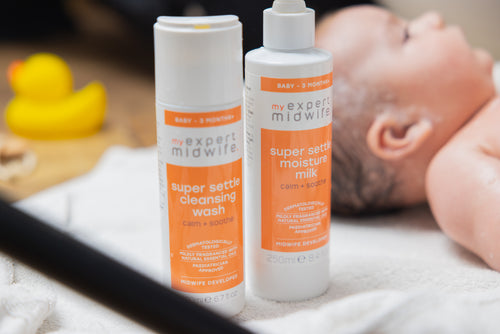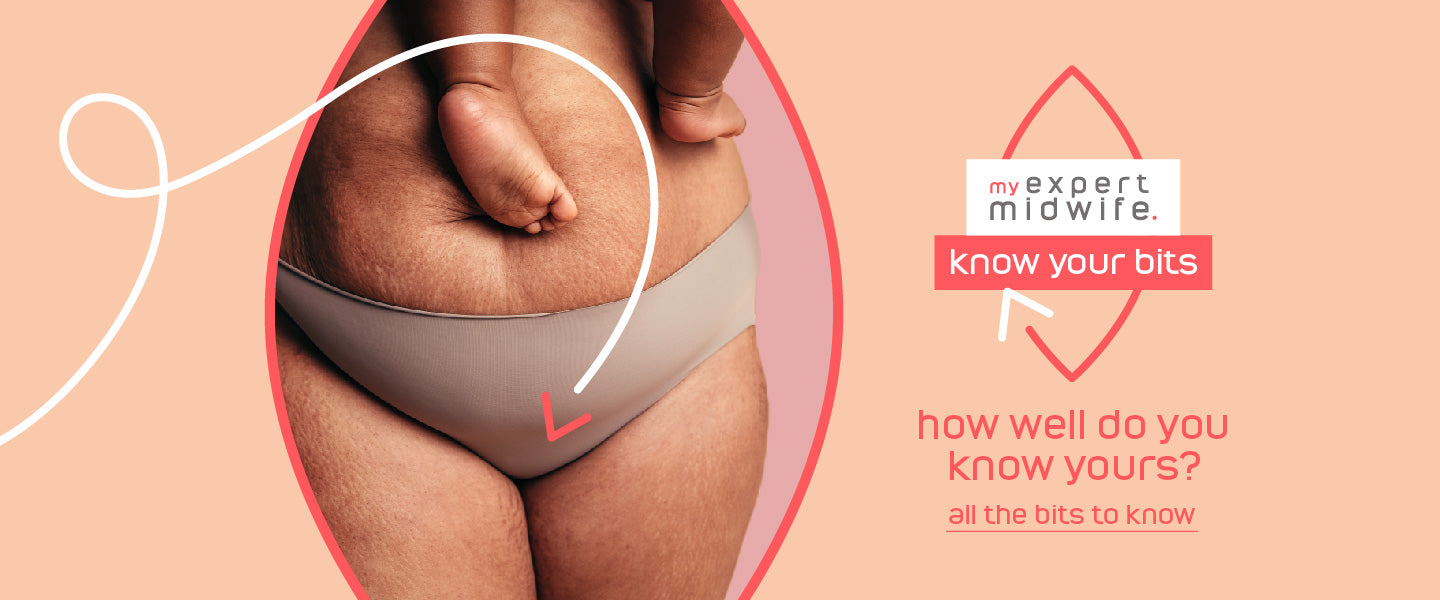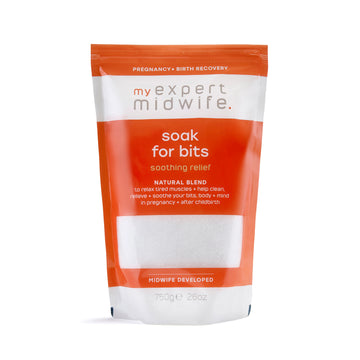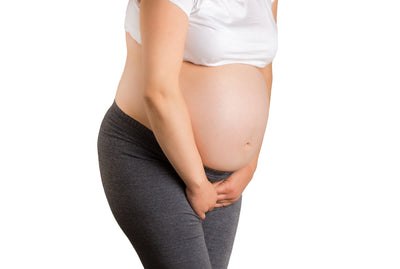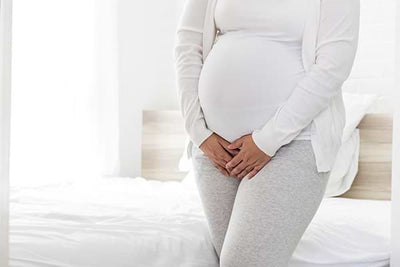Did you know 83% of women feel more education about the physical changes that can occur to the vagina and vulva during pregnancy and childbirth is required? And two thirds of UK women (66%) believe there is social stigma around discussing your genitals during pregnancy and after childbirth!
Here at My Expert Midwife our dedicated team of inhouse registered midwives discuss this taboo subject with some honest, straight talking education and advice to normalise and remove the stigma! We will help you get to know your bits better as your body is changing, growing a brand-new life within it so you know how to care for them.
We will guide you through your bits so you know your vulva from your perineum, their function, importance, how to soothe them through pregnancy, how to prepare them for birth, what you can do during birth to protect them and how to provide the care your bits need to optimise your recovery after the birth.
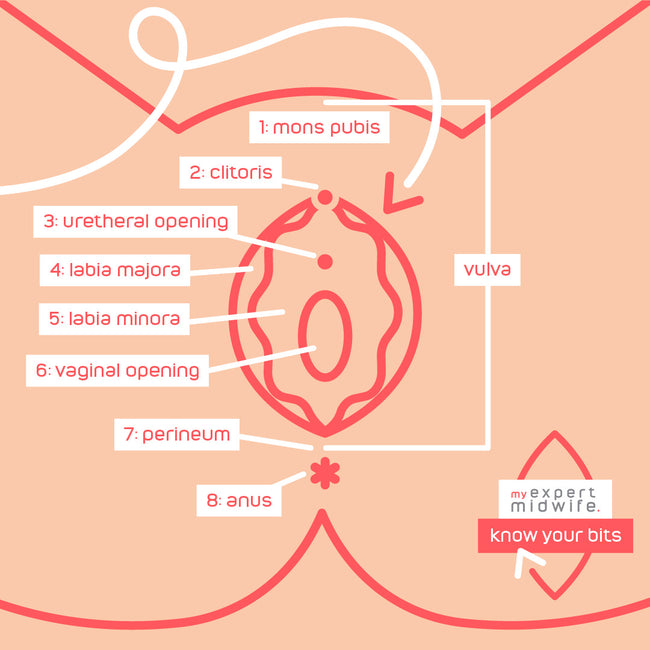
We conducted a recent Census study with over a 1000 women in the UK, we realised that lots of people were quite unsure about their bits, what they were, their location and their purpose and 75% of women believe the lack of education around women's intimate health means physical changes to the vagina and vulva during and after pregnancy are not normalised in society.
We thought it was about time we developed a much-needed information resource, dedicated to helping everyone to learn more about their bits, which bits are where, what bits do which jobs and generally to celebrate how amazing our bits are!

Our expert midwife Malena Monteverde has pulled together a trouble shooting guide to help you identify changes and ailments to your bits through pregnancy, birth and beyond.
Helping you understand the different changes and possible ailments that may happen to your “bits” during your pregnancy, your birth and your recovery will help you feel informed and able to distinguish what is ‘normal’ and when you may need to seek advice from a health professional. By “bits” we refer to your vulva, vagina, anus and pelvic organs. This informative blog covers:
- Pregnancy - Discharge, piles, thrush, varicosities, urine infections and bleeding.
- Birth - Perineal massage, warm compresses and positions.
- Recovery - Swollen and tender bits, tears and episiotomies, bleeding, piles and incontinence.
Don't forget to share our trouble shooting guide to your bits from pregnancy through to post-birth-and-recovery with a friend who may need some much needed relief!
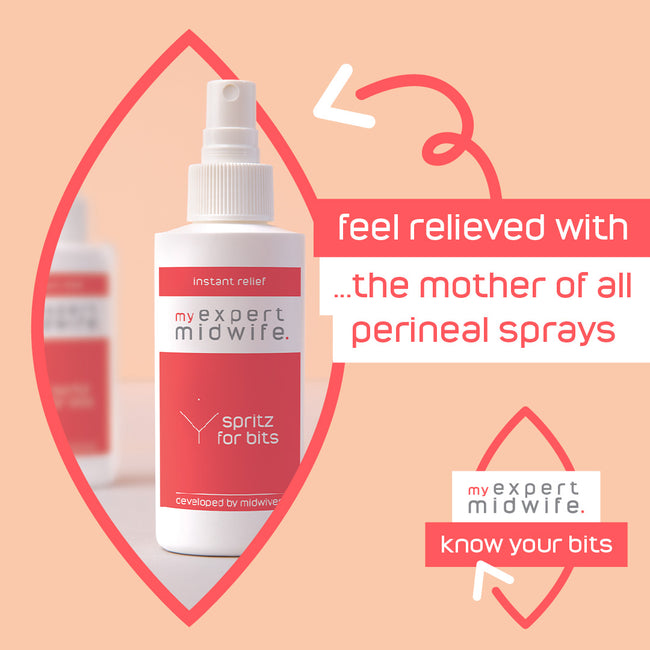
Spritz for Bits was developed by Lesley Gilchrist, registered midwife and Co-Founder here at My Expert Midwife for women as there weren’t any complete products to help manage soreness after childbirth.
Lesley expertly blended witch hazel, tea tree and lavender to soothe and calm in a practical bottle that sprayed upside down and applied just the right amount to provide instant relief.
With multiple awards including the 2021 Mother & Baby Gold award for best maternity product and hundreds of 5 star reviews its no wonder Spritz For Bits is recommended by so many women.
Did you know Spritz for Bits can be used throughout pregnancy as well as for birth recovery?
Whether you are suffering with piles, swelling or discomfort around the vulva area or you simply need to calm and cool itching, Spritz for Bits will soothe your bits for some much needed relief.
Read our blog on how you can use Spritz for Bits through pregnancy, birth and beyond.

Join our team of in-house midwives and special guests where we chat all things bits related from pregnancy to the fourth trimester!
Sarah-Jane Crawford discusses everything from constipation, weeing, UTSs, discharge, maternal mental health, perineal massage, C-sections and the importance of communicating with each other!
Get ready to talk all about the anatomy of the vagina, and what to call all the ‘bits’, to birthing positions, incontinence, prolapse, recovery and stitches, sex after birth and much much more with Karen McEwen and Ashley James.
Cathy Tabner and Lisa Parkins from @teddyhastwomams! talk about what happens to your bits during and after birth, are they ever going to be the same again?! How important rest and recovery is for healing and self care, Cathy and Lisa’s top tips, and much more!
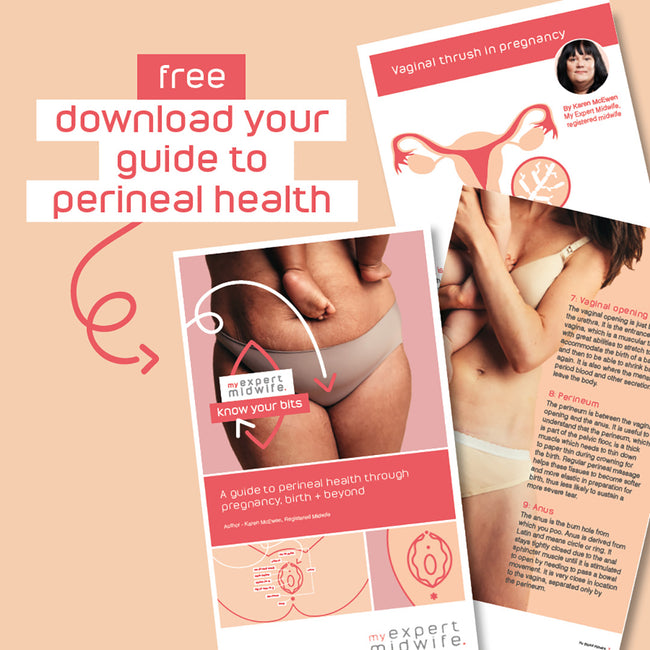
This FREE downloadable guide is written by our expert midwife Karen McEwen, formatted to be read easily on your mobile, covers everything you need to know to get to know your bits and also look after them too.
Lets be honest you will encounter many changes during pregnancy, birth and your recovery and getting intimate with your bits will help you feel more knowledgeable through pregnancy, preparing for birth and your recovery.
Download your FREE perineal health guide for pregnancy, birth and beyond.
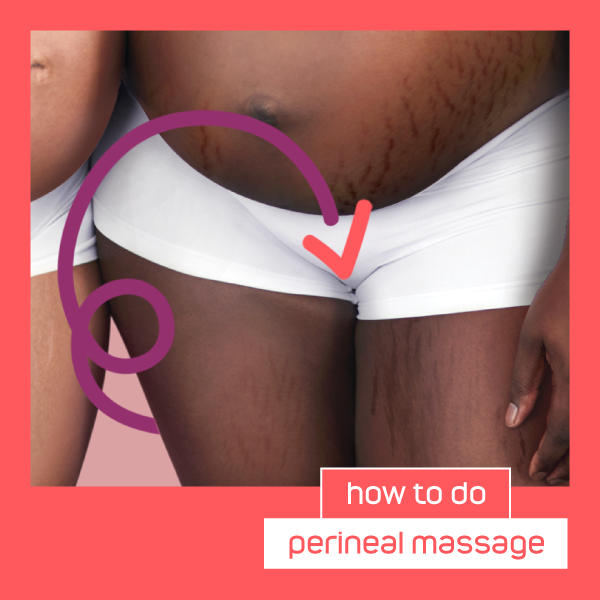
Preparing your perineum before birth can help stretch the skin and muscle and so reducing the risk of tearing or need for an episiotomy.
Here are some tips on perineal massage that will help you get prepared for your baby’s birth:
- Start perineal massage at week 34 of pregnancy
- Find a perineal massage oil. You can use one specially blended and designed for perineal massage or an oil such as almond oil
- Make time to do this 3 or 4 times a week
- If you struggle to do this yourself, you can ask your partner to help
For more information on why and how to do perineal massage click here, or book onto our live perineal massage midwife webinar which also comes FREE when you purchase Peri Prep Your Bits.
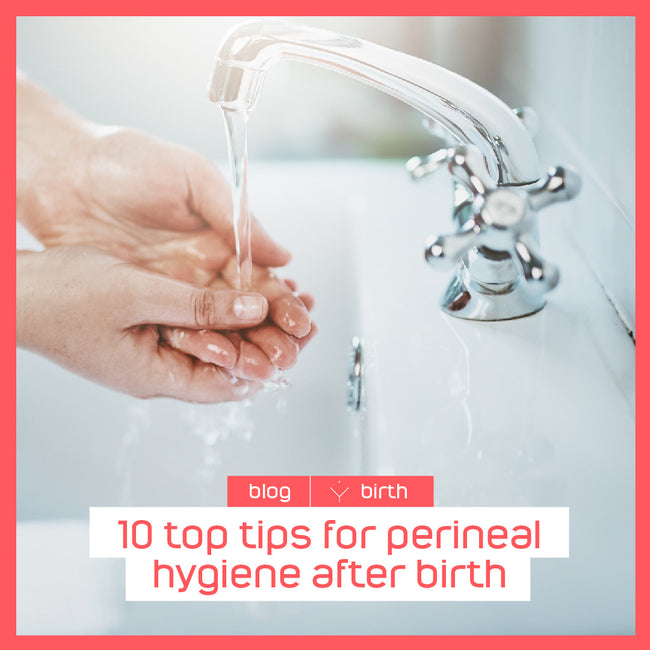
The postpartum period can often feel like all the focus is on the new baby, but you also need to spend time caring for yourself - especially your perineal area-to ensure optimal recovery and reduce the chances of infection. Your needs can vary greatly after a vaginal birth as your body may recover quickly, or more likely it can take some time to start feeling more like yourself again. These variations are all normal. Here our midwives have compiled their Top 10 Tips to help maintain perineal hygiene after the birth of your baby:
- Wash or shower at least twice a day during the first week to keep the perineal area clean
- Wash your hands before and after changing your maternity pad to help reduce the chance of infection
- Change your maternity pad at least every four hours. This helps to prevent the build up of bacteria and reduces the chances of an infection developing.
- You will probably want to pass urine more often as this is how your body rids itself of extra fluid after the birth. Always ensure you are wiping from front to back, so you don’t spread any bacteria from the anus to the perineal/vaginal area. This will reduce chances of infection especially if there are sore areas or you have stitches
- You can use Spritz for Bits from day one after you give birth if you've had a vaginal delivery
Click here for the full midwife 10 top tips for perineal hygiene

We often hear about how hard recovery from childbirth can be. It can be a shock to realise how much your life has changed once you bring your baby home and when you have a baby to care for too you might feel as though your needs are not as important. However, it is essential that you allocate some time each day for yourself.
You will certainly benefit from this as self-care will have positive effects for both your body and mind as you recover from pregnancy and the birth. Spending time caring for your body, whether you have had a vaginal birth or a caesarean section (C-section) birth, can help you to understand if you are healing well or if you need to seek some support.
To learn more on how you can care for your bits after a vaginal birth or taking care of of C-section recovery read our midwife blog here.
